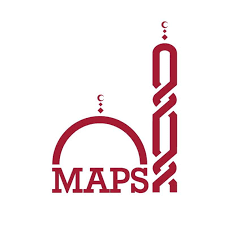Learning respect through exploration
Morocco-bound SPU students marvel at the experience of Redmond’s Islamic mosque
November 18, 2022

Walking up to the white, domical exterior of the mosque, a person cannot help but be flooded with feelings of serenity and reverence. Upon entering, intricate designs adorn arched doorways while ornate lanterns lead the way to various rooms of prayer, worship and religious inquiry.
On Nov. 11, nine Seattle Pacific University students and assistant professor of journalism, Sara Shaban, were invited to tour the Muslim Association of Puget Sound’s mosque in Redmond, Washington. The visit was part of an effort to offer experiential learning for the students’ upcoming study abroad trip to Morocco. The visit consisted of a tour of the mosque and a presentation of Islamic culture, led by a member of MAPS’ Muslim Community Recourse Center and Interfaith Outreach committee, Oraib Khalifeh Kabbani.
The tour included two common areas designated for events and classes, a library filled with books explaining the beauty and tradition of the Quran, the Islamic Holy Book, and the expansive prayer room turned half sports court during the school week.
The prayer room, covered in red and gold carpets with designs mirroring the detailed archways of the mosque, is separated into male and female sections to deter distraction during prayer. Shoes must be removed before entering, and, during the service, women cover their hair with scarves, creating a sacred display of communal expression of faith.
When touring, Khalifeh Kabbani explained the architectural mechanics of the prayer room. At the front sits the Mihrab, an arched niche built in the direction of Mecca, a sacred place in Saudi Arabia for Muslim pilgrimage. Members of the mosque pray in the direction of the Mihrab and Mecca as a display of devotion to the sacred land and Allah. The Mihrab also acts as an architectural sound system as the sermons given by the Imam are reverberated through the niche onto the dome in the ceiling and distributed among the many worshipers.
The architecture of the mosque and prayer room is just one example of the intentionality behind Muslim traditions in creating a space for community and devotion.
Kabbani also explained the devotion to Allah and the freedom a person feels in wholly trusting Allah’s plan and will.
“You have to submit and believe that God would solve the problem, no matter how big it is. God wants me to be here, it’s not my choice to be here but God had determined for me to be here. I do have a choice, but the bigger picture has been painted by Allah,” Kabbani said.
Many misconceptions of Islam exist within Western society, especially regarding the treatment and religious expectations of women.
“How Hollywood represents the Arabs is a pity because we have such a beautiful culture that they mix up or say, ‘The women are always hidden or in a harem, waiting for the man to come.’ There are no women like this ever in the history of Islam, especially, or the Middle East,” Kabbani said. “With how many invaders came to our part of the world, can you imagine just women sitting there, waiting for somebody? It’s impossible to believe this way. The more I know women here and in my own country, the more I know how smart they are.”
Women are an integral part of the Muslim community, as Kabbani explained that there is no discrimination between the treatment of men and women within the traditions. It is all about complete devotion to Allah, regardless of gender.
Once the Friday services ended, the students were treated to a delicious lunch of falafels, mint tea and decadent sweets. The group enjoyed the food and thoughtful conversation about the experience they were afforded.
Third year theatre education, English literature and honors liberal arts major Susan Nash enjoyed seeing how the Islamic faith could connect back to their own life.
“My favorite part was learning about the five pillars of Islam and the foundation of the faith. And then later in the sermon seeing those connect in real life. Also, my other favorite part was the food,” Nash said.
Aside from being able to experience and participate in a new culture, Nash expressed anticipation and new-found cultural knowledge in preparing for her trip to Morocco in the upcoming weeks.
“Before traveling abroad, I think it’s good to have a foundational knowledge of where you’re going and what to expect,” Nash said.
Second year ecology and honors liberal arts major Sara Mach explained the significance of why students should explore other sects of the Abrahamic faith besides their own.
“I feel like exposure to other religions where misconceptions may lie is helpful so that people can be like, ‘Oh yeah! These are just people who have their religion, and we need to respect them, and they respect us.’ It is a very symbiotic relationship, not us against them.” Mach said.
A person’s willingness to take the time to branch out of their cultural and religious comfort zone provides immense opportunity for spiritual and personal growth. They are afforded the chance to live out the commandments of ‘love thy neighbor,’ and find common ground where there was once misunderstanding and contempt.
























































































